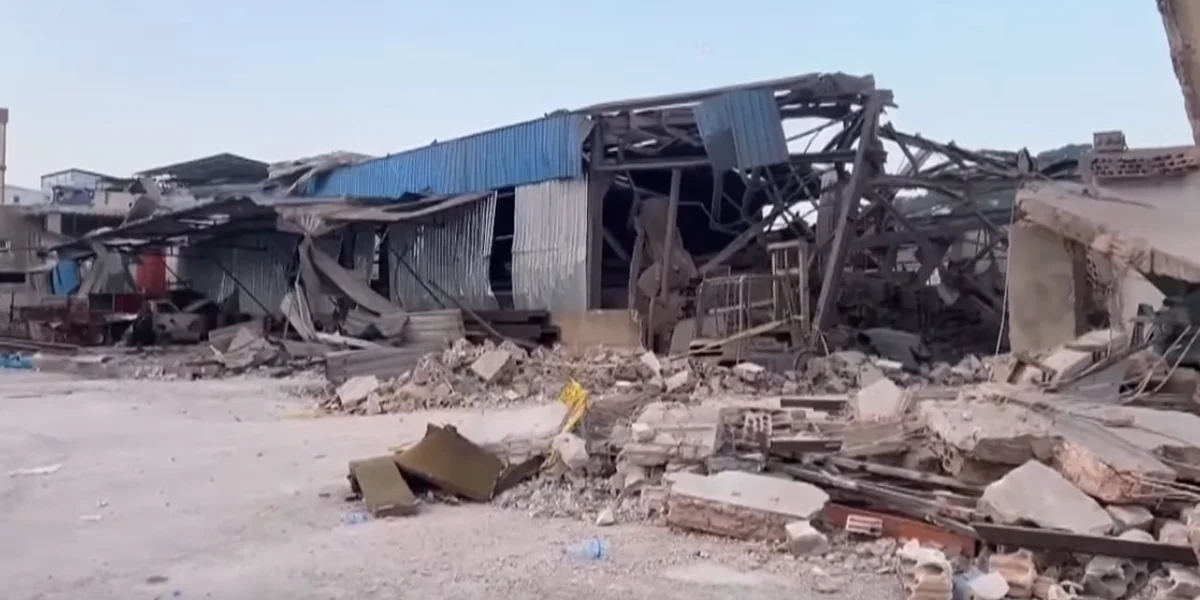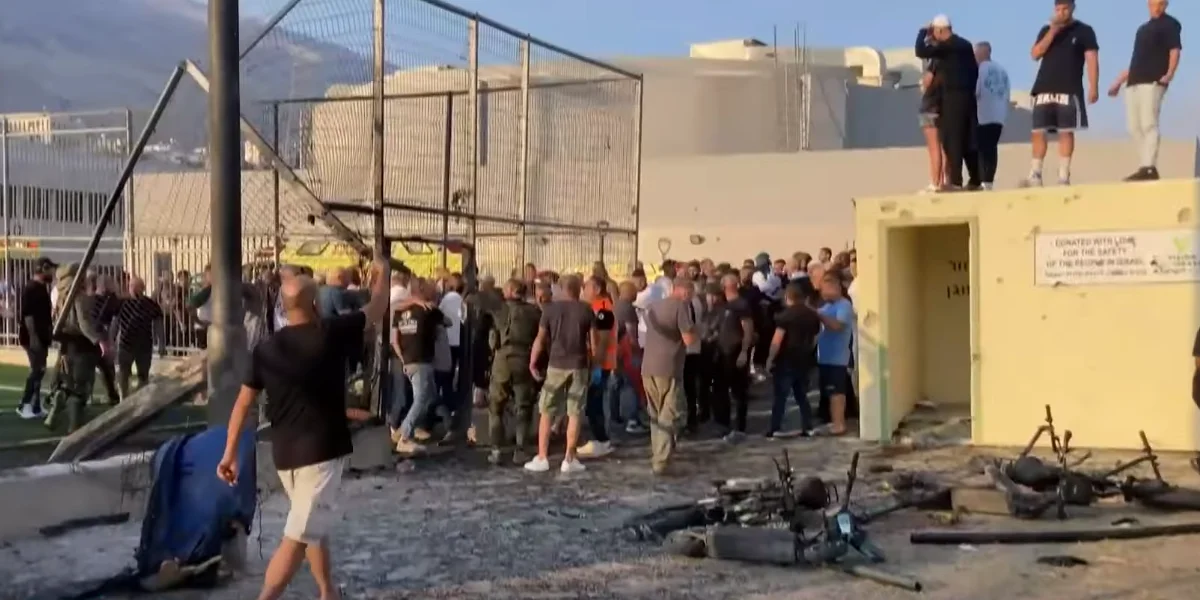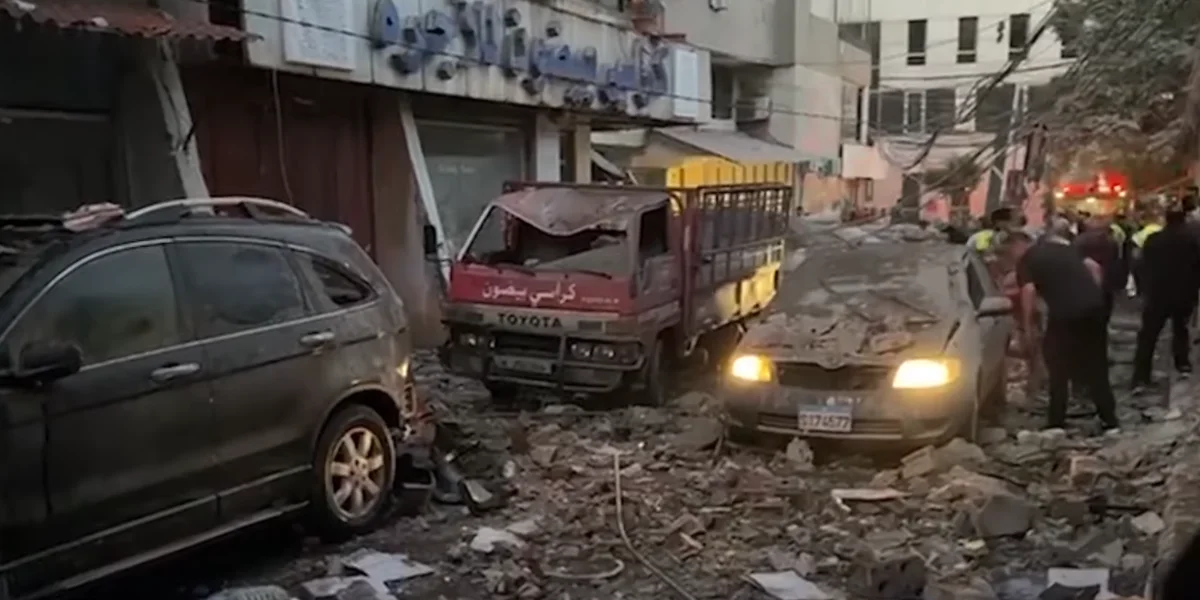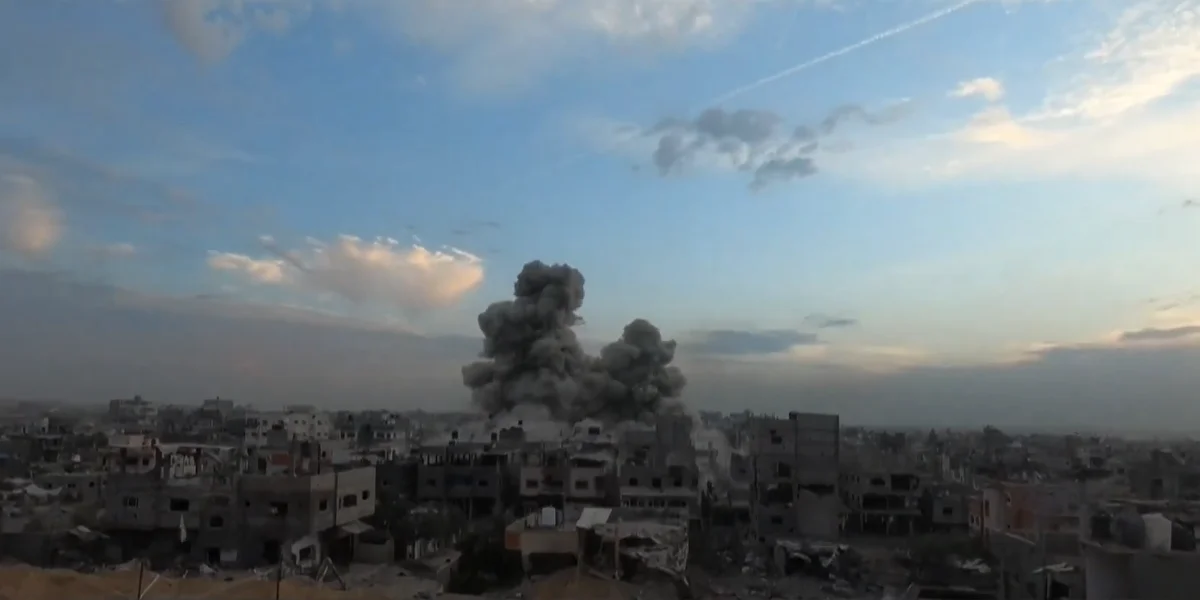Israeli airstrike in Lebanon results in at least 10 deaths

Ten people have been killed by an Israeli air strike in southern Lebanon, according to Lebanese officials. This is one of the bloodiest incidents in the current border warfare between Israel and Lebanon.
The Iranian-backed Lebanese militant organization Hezbollah used a weapons depot, according to Israel's military, which carried out the strike late on Friday. The mayor of Toul, the town where the incident happened, refuted that story, though.
According to Dr. Firass Abiad, the health minister of Lebanon, every individual killed in the attack on Toul, which is close to the southern city of Nabatiye, was a Syrian refugee, including a woman and her two children.
In a phone conversation, Toul's mayor, Saeed Mahmoud, stated that the plant was used to gather steel replacement parts.
One of the damaged buildings' owner, Hossain Tohmaz, said that it was a "100% civilian facility" where people lived and worked.
"This is a hangar used for manufacturing iron, and that is a warehouse where we park trucks for loading goods like solar panels. The workers live and sleep on the top floor," he said.
In the ten months after the start of the Gaza War, border attacks with Israel have occurred almost every day, making this year's death toll in Lebanon among the highest thus far. In support of the Palestinians in Gaza, Hezbollah members and other terrorists backed by Iran have been striking Israel, resulting in months of cross-border gunfire from both sides.
Hezbollah, a political and militant organization in Lebanon with Iranian support, retaliated by firing a flurry of rockets at two Israeli military posts and kibbutzes in the north of the country.
The Israel Defense Forces (IDF) said that two Israeli soldiers were hurt in the second incident, whereas no one was killed in the first.
Following Israel's killing of top Hezbollah leader Fuad Shukr in Hezbollah's stronghold in southern Beirut, tensions have risen even higher in recent weeks. Hassan Nasrallah, the head of Hezbollah, has promised to avenge the murder.
It happens at a time when foreign mediators are pressuring Israel and Hamas to reach a ceasefire agreement in their next negotiations because of concerns that the Gaza War may turn into a regional war.
Friday's high-level negotiations in Qatar on a cease-fire and the release of the 115 captives that Hamas and its supporters are still holding in Gaza came to an abrupt end without any progress. But while negotiators raced to attempt to reach an agreement, the US, Egypt, and Qatar announced that talks would resume in Cairo the next week.
The fighting in Gaza has continued while top officials have traveled between capitals in an effort to bring the conflict to a stop.




